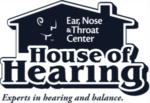FAQ
Commonly asked questions about hearing aids, hearing loss, and other hearing disorders.
Frequently Asked Questions
How do I insert a hearing aid into my ear canal?
Holding the hearing aid between your index finger and thumb, gently insert the tip of the hearing aid (the canal part) into your ear canal. Make sure the battery door is facing out when you do this. Slowly twist the hearing aid until the top part is comfortably placed on your outer ear.
During your appointment, we will walk you through how to properly insert your hearing aids.
Why are my ears constantly popping?
Ear popping could be due to a couple reasons. It could be built-up earwax causing a sensation of clogged ears which may pop when you move your jaw. Another possibility is excessive mucus in the eustachian tube, causing a popping sensation and discomfort. We can perform an ear exam by looking inside your ears to determine the cause. If your ears are free of earwax, then we will refer you to an ENT to determine if your eustachian tubes are the culprit.
Why does my ear keep ringing?
Ringing in the ears can be due to a variety of causes, these include loud noise exposure, impacted earwax, head trauma, stress, or underlying health conditions. Tinnitus can be temporary or constant and depending on the severity of your symptoms, a tinnitus assessment may be necessary.
How long does tinnitus last?
The phantom sounds of tinnitus can last anywhere from a few seconds to days at a time. Everyone experiences tinnitus differently and it can range from mildly annoying to debilitating. If you have tinnitus that has lasted more than a few days, contact our office for an appointment.
How long do hearing aids last?
Hearing aids have an average lifespan of 3-7 years. The better you take care of your devices the longer they will last you. Although hearing aids can provide you with better hearing for many years, many patients like to upgrade their hearing aids around the 3–5-year mark to take advantage of new technology.
Why do I experience sudden bursts of dizziness?
If you frequently experience dizziness, a spinning sensation, or overall unsteadiness on your feet, you should seek help immediately. At House of Hearing, we are the regional leader in hearing and balance disorders and can help you. We offer diagnostic balance testing to determine the cause of your dizziness and to help you find the right treatment plan.

